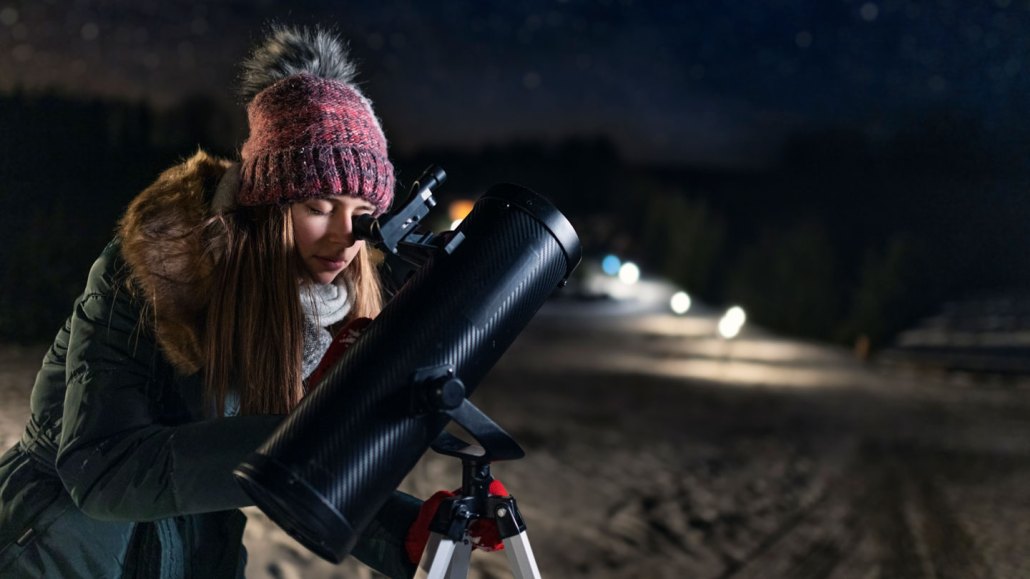atmosphere: The envelope of gases surrounding Earth, another planet or a moon.
black hole: A region of space having a gravitational field so intense that no matter or radiation (including light) can escape.
crater: A large, bowl-shaped cavity in the ground or on the surface of a planet or the moon. They are typically caused by an explosion or the impact of a meteorite or other celestial body. Such an impact is sometimes referred to as a cratering event.
focus: (in physics) The point at which rays (of light or heat for example) converge sometimes with the aid of a lens. (In vision, verb, "to focus") The action a person's eyes take to adapt to light and distance, enabling them to see objects clearly.
gamma rays: High-energy radiation often generated by processes in and around exploding stars. Gamma rays are the most energetic form of light.
glass: A hard, brittle substance made from silica, a mineral found in sand. Glass usually is transparent and fairly inert (chemically nonreactive). Aquatic organisms called diatoms build their shells of it.
Jupiter: (in astronomy) The solar system’s largest planet, it has the shortest day length (9 hours, 55 minutes). A gas giant, its low density indicates that this planet is composed mostly of the light elements hydrogen and helium. This planet also releases more heat than it receives from the sun as gravity compresses its mass (and slowly shrinks the planet).
lens: (such as glass) that bends incoming light in such a way as to focus it at a particular point in space. Or something, such as gravity, that can mimic some of the light bending attributes of a physical lens.
moon: The natural satellite of any planet.
observatory: (in astronomy) The building or structure (such as a satellite) that houses one or more telescopes. Or it can be a system of structures that make up a telescope complex.
optical: An adjective that refers to light or vision.
radio waves: Waves in a part of the electromagnetic spectrum. They are a type that people now use for long-distance communication. Longer than the waves of visible light, radio waves are used to transmit radio and television signals. They also are used in radar.
telescope: Usually a light-collecting instrument that makes distant objects appear nearer through the use of lenses or a combination of curved mirrors and lenses. Some, however, collect radio emissions (energy from a different portion of the electromagnetic spectrum) through a network of antennas.
tool: An object that a person or other animal makes or obtains and then uses to carry out some purpose such as reaching food, defending itself or grooming.
ultraviolet: A portion of the light spectrum that is close to violet but invisible to the human eye.
ultraviolet light: A type of electromagnetic radiation with a wavelength from 10 nanometers to 380 nanometers. The wavelengths are shorter than that of visible light but longer than X-rays.
universe: The entire cosmos: All things that exist throughout space and time. It has been expanding since its formation during an event known as the Big Bang, some 13.8 billion years ago (give or take a few hundred million years).
X-ray: A type of radiation analogous to gamma rays, but having somewhat lower energy.







